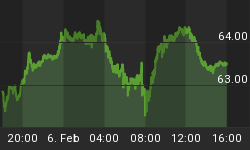How far is the Fed from reaching the bottom of its ammunition box?
Well, both Mario Draghi and Ben Bernanke said no to yet more monetary stimulus last week.
Wall Street unsurprisingly was disappointed.
Wall Street expected more stimulus, as institutional investors are analyzing monetary policy from their own perspective rather than the central bank's viewpoint - understandable, but a big mistake.
Wall Street's Conundrum: with the S&P 500 up less than 7% in 2012, the year is almost over, and the investment firms have little to show for it.
This 7% return might be OK in calmer markets, but instead investors have been taken on a rollercoaster ride - all for a measly 7% return.
So what could send stocks higher?
Well, if the European crisis just disappeared, things would turn for the better. but that's not likely to happen.
Or perhaps if US unemployment finally moved downward. but that's not going to happen either.
The only short-term savior for equity markets is another round of extreme monetary stimulus, which will keep things propped up a bit longer.
Hopefully in that time, unemployment and the general economy would improve, which would lead to a reduction in the fiscal strain on troubled governments.
So Bernanke has control of the only immediate game-changer left on the table, and he's not playing Wall Street's tune.
Without that money, Wall Street faces the reality of a stagnant market.
Frankly, fund managers don't need a meltdown to be badly hurt here; failing to produce adequate returns is a bad enough outcome.
After all, how many people would place their money in a high-risk market after a few years of low single-digit returns?
Probably much fewer than today.
As a result of this conundrum, Wall Street sees monetary stimulus as the only way forward - hence the strong belief that Bernanke and Draghi will produce stimulus at any moment.
To Wall Street, this makes sense, but unfortunately for them, the Federal Reserve has different incentives.
Bernanke realizes that he is low on bullets. The last few landed way off target, and his final bullet might miss the mark even more so.
Bernanke is stuck with two options here: he can fire off his last bullet now (as Wall Street desires) and can send the market up maybe 1,000 points on the DJIA.
Or he can wait to save this last bullet in case the market crashes.
But if Bernanke shoots his bullet now and the market crashes anyway, he's going to go down in history as the worst Federal Reserve chairman ever.
And if he tries to shoot the gun again in an emergency after he has overheated it, Bernanke might very well send the economy into a hyperinflation.
In such a scenario, he would become a cautionary tale for econ graduate students for the next hundred years (and I'm not kidding about that. economists are still discussing the monetary policy of the Great Depression).
Would you take such a risk for a couple of hundred extra points on the DJIA? I don't think so.
Wall Street's incentive and Bernanke's couldn't be further apart on delivering another monetary stimulus before it's desperately needed.
You may ask yourself:
"Didn't Bernanke boost the stock market only a few years ago? Why wouldn't he do it again now?"
Times change. A few years ago, Bernanke had a lifetime wealth problem on his hands regarding the average US consumer. When someone loses 25% of their home's equity and their 401(k) crashes by 35%, they become shell-shocked as a result of their total lifetime wealth taking a sudden large dip.
Economists understand that the spending behavior of someone with a $500,000 nest egg saved for retirement isn't the same as for a person with half as much.
It's really a simple concept: when we feel more comfortable about our future,we can spend more today.
Even if one had no risk of losing his or her job in the crash, personal spending habits would often change in reflection of reduced lifetime wealth.
Beforehand, by boosting equity markets, Bernanke could stimulate the economy by increasing everyone's sense of their lifetime wealth, inducing them to spend more in the present.
Unfortunately, as we've reported on many occasions, this strategy didn't work so well.
Now Bernanke again holds the option of boosting equities with yet more stimulus. Will another thousand points on the DJIA really send the economy back into a recovery?
Most likely not.
That said, another round of monetary stimulus isn't completely out of the question.
A High-Risk Gamble: However, with the possibility of a European-led market crash around the corner, an early stimulus would be a very high-riskgamble in Bernanke's eyes - a gamble that may seal his fate forever.
While Wall Street fund managers are worried about delivering returns to their clients, Bernanke has a million problems on his mind, and equity pricesare not one of them.
Though the market will continue to get overexcited at the possibility of more monetary stimulus, we probably won't see another round of a truly massive program until things really hit the fan and the Fed is forced to reach toward the bottom of the ammunition box.
While Ben scrambles around on the floor for more bullets, investors need to rethink their strategy to get them through to the other side of this crisis, because it's far from over.















